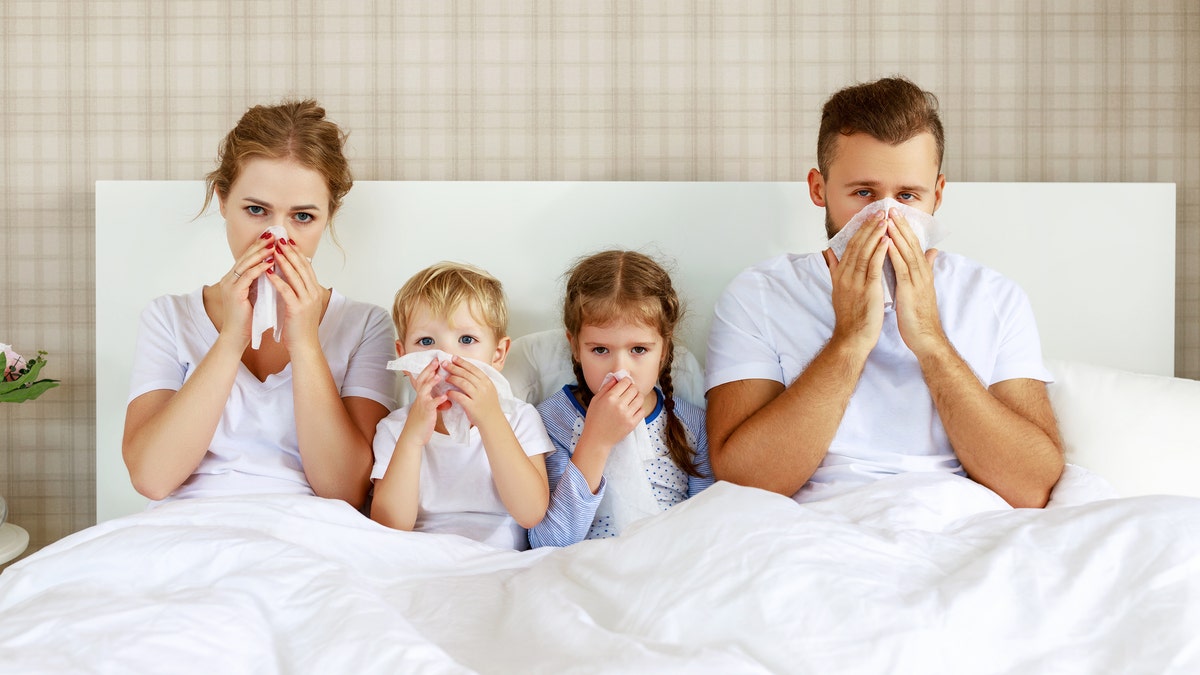The coronavirus and seasonal allergies have some common symptoms that can raise concerns for school kids’ parents as they head back to the classroom. To help distinguish between the two, the Centers for Disease Control and Prevention (CDC) has provided some guidance as the school year begins.
"It can be difficult to differentiate allergies from infection from COVID, especially when both can be prevalent at the same time of the year like it can be this fall," Dr. Fred Davis, an emergency department physician at Northwell Health Long Island Jewish medical center on Long Island, N.Y., told Fox News.

COVID-19 and allergy symptoms have some similarities according to the CDC
One key difference is that a fever typically occurs with COVID-19 and not seasonal allergies, according to the CDC and health experts.
"Both can lead to a runny nose, cough, and congestion. The big differentiation is usually fever, those with symptoms from allergies tend to not have a fever, whereas those with a viral infection like COVID will tend to have a fever (i.e. a temperature greater than 100.4)", Davis, also the associate chair of emergency medicine, continued.
Additionally, itchy, watery eyes and sneezing are symptoms commonly associated with allergies and not novel coronavirus, per the CD
COVID-19 symptoms that are not typically present with seasonal allergies include chills and muscle aches, fever, vomiting and nausea, diarrhea, and sudden loss of smell and taste, according to the federal health agency.
There are some overlapping symptoms that can raise concern in parents as their children return to school. Sore throat, fatigue, congestion, runny nose, cough, and headache, are some similarities, per the CDC. Shortness of breath and difficulty breathing is usually associated with a COVID-19 infection; however, it can occur with seasonal allergies when there is an underlying respiratory condition such as asthma or a severe allergic reaction which may require medical attention.
AMID CORONAVIRUS, IS IT SAFE TO SEND CHILDREN BACK TO SCHOOL? EXPERTS, PARENTS WEIGH IN
If you are unsure and think you or your child may have been infected by COVID-19, it is recommended to get tested, notify the school and follow CDC guidelines for quarantining to avoid the spread of the disease, the CDC said. If your child is experiencing difficulty breathing, immediately seek medical help.
The CDC recommends frequent handwashing, social distancing, and wearing masks for those above 2 years old to avoid exposure to SARS-CoV-2, the virus also known as COVID-19. Wearing masks may also help ward off some allergens, according to the federal health agency's website.









































